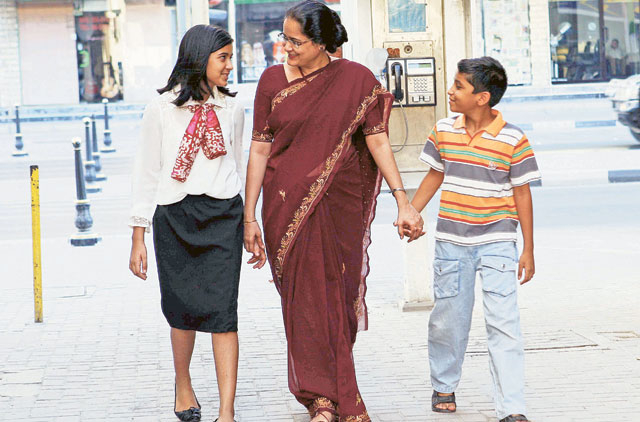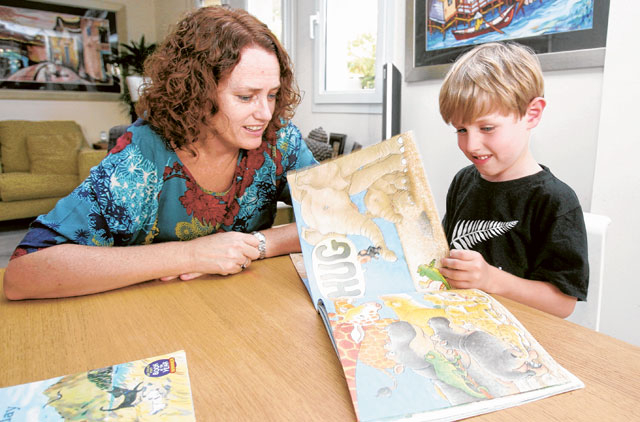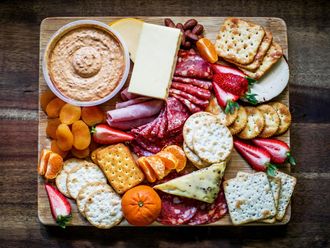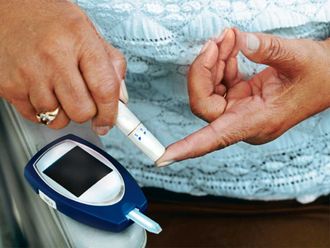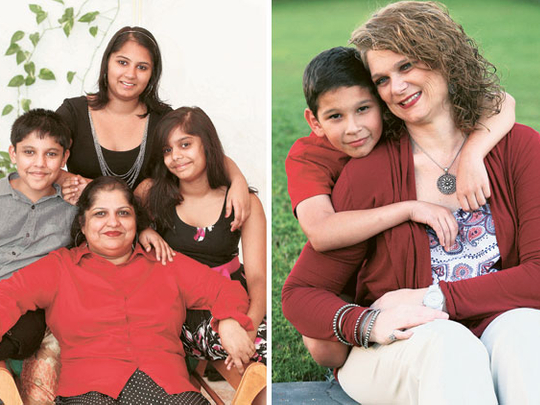
Teachers and professors across the world have found them annoying, infuriating and exasperating. They are found in schools and colleges everywhere. And no — I'm not talking about the kids. It's the parents.
They are known as ‘helicopter parents'. Carmen Benton, parenting educator and educational consultant at LifeWorks Counselling and Development explains: "The term helicopter parent is used for those parents who generally hover around educational institutions and college campuses. Some parents would even go so far as to approach teachers and demand a change of unsatisfactory college grades."
Elizabeth Eapen, grade ten teacher and mother of two, says: "Nosy parents do more harm than good even though they may not believe that."
But you will rarely find one who claims to be a helicopter parent. Hovering parents will claim they have their child's best interests at heart. Apparently it begins at an early age and continues throughout childhood and, in some cases, into adulthood.
"The classic Dubai example of over-parenting would be that of a mum or nanny chasing the child with a spoon all over the playground," Benton says. "Why not let the child come to the dinner table hungry? Parents seem to be over-indulging their children, creating a situation where instant gratification is always expected."
"There was a student whose parent was very particular about where she should sit in my class, who she should interact with or not," Eapen recalls. "I did not comply with these unreasonable requests as it interfered with the way I taught and today the same parent respects and trusts me completely with her daughter."
Unfair treatment
"We have encountered discrimination at my daughter's school," says Suzanne Vaidya, mother of two girls aged 10 and 7. "It doesn't help a developing child to be made to feel insignificant in class while others are shown favour."
However, the girl was not alone in this treatment. "There was a family who felt so strongly about how unfairly their son was being treated that they threatened to complain to the Ministry of Education. I would not go so far, but I have addressed the teachers regarding the issue. As a parent, I have to be careful even about social events such as birthday parties and play dates. If the fathers of other children are in town I'm careful not to send my daughter to her friends' homes. I feel this kind of supervision is necessary. My older daughter is very responsible so she accompanies my younger one to parties when they are at safer venues such as McDonald's and not in other homes."
Benton, who is the mother of an energetic five-year-old boy, believes it takes a village to raise a child.
"I've been blessed with a group of wonderful friends who are also mothers of similar-aged children. My son needs to spend time with others besides just his mum and dad. So we encourage him to go cycling, swimming or playing with his friends. Our circle of friends is quite close so we have our children play in each other's homes. Children should be allowed to grow and explore with safety measures in place. It is the prime responsibility of parents to ensure safety and supervision of their children at all times."
Benton says it's essential to stay connected to the child's teacher. "I have a good rapport with his teacher. If she needs to talk to me about my son, she knows she is free to do that and she respects my ‘need to know'."
America-born Carrie Wojtowicz says: "As a parent, I want to know what is going on in my child's school, to be involved in some decisions, and to be part of change when needed." The mother of three children ages 25, 17 and 9 joins other mothers who take an active interest in their children's education. "Being a ‘classroom mum' over the years has seen me interact closely with teachers."
Guiding force
Malaysia-born Doreen Chew, mother of two children ages 14 and 11, makes sure she and her husband attend all parent-teacher meetings. "That is the best way to get first-hand knowledge of your children's progress," she says. It was at one of these meetings that she learnt her son wasn't participating in many activities due to shyness. "The teacher changed her approach to accommodate and encourage our son and he now excels in all he does at school. I believe its better to guide, not control."
"Parental involvement is good because it shows you care as a parent, but at some point you need to let go, trust the teachers and show the kids how to honour them," says homemaker Diana Hart.
Trust issues
While it may be good for parents and children to learn to trust the teachers, sometimes that trust can be violated. This could be during classroom instances of physical violence or emotional assault. Wojtowicz says: "If my child spends seven hours a day with a certain person outside our home who could potentially influence him for the rest of his life, I need to know and trust this person."
Hart, a Pakistani mother of three teenage children, says: "At one point my then 6-year-old daughter was subjected to verbal and physical abuse by the teacher and as parents we had to step in and put a stop to it."
Then there are the "control freak" parents who overreact out of fear or unfulfilled self ambitions.
The fear for their child's safety may be due to some emotional trauma in their past. 24-hour news channels and reports of child trafficking and abductions around the world don't help either, Benton feels. "Maybe some parents are prone to ‘anxiety response' and they constantly think bad things will happen to their child, so they control all aspects of their child's life."
Being aware
"How can I not be affected by what I see in the news?" asks Dana Rowley, parent of an 8-year-old. "It's a scary world we live in. It may seem extreme but I have to know every single aspect of my daughter's friends, whereabouts and even daily conversations. Each week I find it helpful to speak to other mums who have their kids in the same school.
"This is useful to keep tabs on what other children are saying about their teachers and what happens during school activities such as swimming and music classes. My daughter is aware of the reasons for the safeguards. We make it a point to sit together and talk about the different issues of life.
"It's important to guide and warn our children about the dangers of other adults' encroaching on a child's personal space. My daughter knows she can talk freely with us anytime if she feels unsafe due to the behaviour of another person."
Longing for more
There are people who, despite being highly artistic, have given up their interests to care for their children. Benton says: "If we took a closer look at ourselves, we would realise we yearn for something we gave up as we became parents and so we over-parent. We worry about the small things when we should be having more fun in life."
Moreover, parental control may also take the form of pressure on children to outperform their peers. "I've seen parents attempt to live out their unfulfilled dreams by forcing their children into activities that don't interest them at all," Benton says.
Growing up early
Some parents have basic trust issues, maybe because they have been raised in a similar manner. Ruchi Motial Suri, professional relationship expert and life coach, says: "There are many parents who cannot trust their children to look after themselves. They have to be in control of every aspect of the child's life. Children are intuitive. They know when parents are not emotionally involved with them and blame themselves if they feel their mother or father does not love them. Such children could, in some instances, mature before their age and adopt the role of an overprotective parent to command attention."
Dr Polixenia Yadegari, specialist paediatrician, Lifeline Medical Centre at Dubai Marina, agrees. "Often, individuals who lacked the emotional connection with their parents become interfering and controlling with their children."
How much of this pattern is learnt behaviour and can we really break the vicious cycle so the next generation does not suffer? Yadegari says: "Although children imitate patterns of behaviour that they observe as they are growing up, some individuals who had overprotective and interfering parents may turn out to be the same, but not all."
And, if needed, "seek professional help", Benton says. "Parenting is a constantly evolving process and parents are always in need of updating, learning and growing. It's also important to get back to doing what you loved doing before the children came along. If we are fulfilled in our own lives, we will become better parents to our children."
— Andrea Bailey is a UAE-based freelance writer
How to avoid emotional effects of helicopter parenting
While the overall effect is low self-esteem and low self-confidence in children, there are many implications to the different types of over-parenting. Emotionally overbearing parents are always trying to shield their children from pain, hurt and disappointments that life might bring.
"Children need to exercise their emotional muscles. If the child is always protected and is not allowed to feel or work through emotions of anger, frustration or disappointment, you will end up with an emotionally stunted adult incapable of dealing with real-life issues," Carmen Benton says.
Parents who constantly force their children to achieve higher grades can be sure that their child will either rebel or have a nervous breakdown eventually.
"We're seeing a lot of eating disorders among children. Substance and alcohol abuse are widespread in teenagers who are routinely forced to achieve academically. While it is important to watch over their academic performance, it is vitally important to give children some measure of freedom to make choices," says Dr PolixeniaYadegari.
Motial Suri says encouragement is the best policy. "Encourage your children in what they want to do. When your children trust you and see you as a friend, they will seek your involvement without you having to force yourself on them."
Benton asks parents to "provide support and nurture your child's needs. Understand your child as a person. Show them ethics in the workplace from a young age by taking your children into your office. They will observe teamwork, respect and punctuality in action. To see their parent being respected by others outside the home is priceless."
Elizabeth Eapen
Teacher
"There was a student whose parent was very particular about where she should sit in my class, who she should interact with or not. I did not comply with these unreasonable requests as it interfered with the way I taught my class and today that same parent respects and trusts me completely with her daughter"
Carmen Benton
Parenting educator and educational consultant
"The classic Dubai example of over-parenting would be that of a mum or nanny chasing the child with a spoon all over the playground. Why not let the child come to the dinner table hungry? Parents seem to be over-indulging their children, creating a situation where instant gratification is always expected."
Doreen Chew
Mother of two
"The teacher changed her approach to accommodate and encourage our son and he now excels in all he does at school. I believe it's better to guide, not control."
Diana Hart
Homemaker
"At one point my then six-year-old daughter was subjected to verbal and physical abuse by the teacher and as parents we had to step in and put a stop to it."
Carrie Wojtowicz
Mother of three
"If my child spends seven hours a day with a certain person outside our home who could potentially influence him for the rest of his life, I need to know and trust this person"


